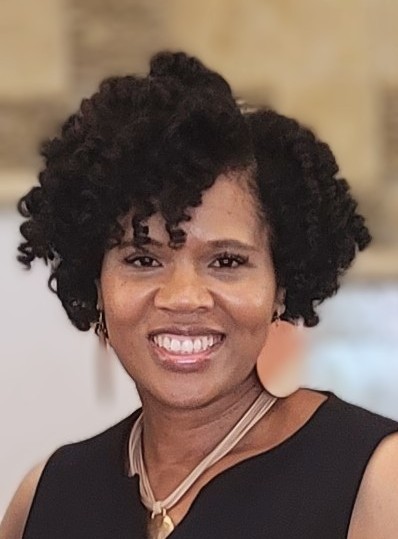Assistant Professor, Deaf Studies
Biography
Professor Hill hails from Houston, Texas and has been interpreting professionally for 28 years. She is a Master Level interpreter, which is the highest level of interpreting certification awarded by the Board for Evaluators of Interpreters (BEI). She also holds BEI Level IV and Medical Interpreter certification. Her work as an interpreter practitioner afforded her the opportunity to work in a variety of settings such as mental health/psychological, quasi-legal, educational, platform and theatrical. She actively engages in community service within the signing communities and encourages those she mentors to do the same.
She began her doctoral studies in the Interpretation and Translation Studies at Gallaudet University from fall 2015 to spring 2015. In fall 2016, she transferred to the University of Birmingham-England to finalize her thesis in Applied Linguistics. Her research is ground-breaking as it is the first mixed methods study to explore the impact of spoken African American Vernacular English (AAVE) on the work of ASL/English interpreters. Her work explores language attitudes, perceptions, and biases regarding the usage of African American English in the field of interpretation/translation.
As part of her service to the profession, she served as a Board member (2007-2013) on the Texas BEI Advisory Board and then as Chair (2013-2017). The BEI Advisory Board advises Texas BEI regarding the application of rules, policies and procedures as they relate to certified sign language interpreters, as well as evaluating and certifying interpreters. For 12 years, she worked at the University of Houston as the undergraduate program Director and a faculty member for the ASLI program. Her focus was to craft curriculum for the first BA degree program in Texas for ASL/English interpreters. The program's success was marked by the fact that graduates that sat for BEI Basic examination passed at a rate of 68%, compared to the overall nationwide pass rate of just 43% as of 2022.
Her focus at the University of Tennessee-Knoxville will be to explore her research agenda which focuses on three key areas:
She began her doctoral studies in the Interpretation and Translation Studies at Gallaudet University from fall 2015 to spring 2015. In fall 2016, she transferred to the University of Birmingham-England to finalize her thesis in Applied Linguistics. Her research is ground-breaking as it is the first mixed methods study to explore the impact of spoken African American Vernacular English (AAVE) on the work of ASL/English interpreters. Her work explores language attitudes, perceptions, and biases regarding the usage of African American English in the field of interpretation/translation.
As part of her service to the profession, she served as a Board member (2007-2013) on the Texas BEI Advisory Board and then as Chair (2013-2017). The BEI Advisory Board advises Texas BEI regarding the application of rules, policies and procedures as they relate to certified sign language interpreters, as well as evaluating and certifying interpreters. For 12 years, she worked at the University of Houston as the undergraduate program Director and a faculty member for the ASLI program. Her focus was to craft curriculum for the first BA degree program in Texas for ASL/English interpreters. The program's success was marked by the fact that graduates that sat for BEI Basic examination passed at a rate of 68%, compared to the overall nationwide pass rate of just 43% as of 2022.
Her focus at the University of Tennessee-Knoxville will be to explore her research agenda which focuses on three key areas:
-
The impact and usage of the African American Language variety within the professional sphere of ASL/English interpreting;
-
Exploring the use of training ASL/English interpreters with language varieties in American English; and
-
Diversity in virtual reality training for ASL/English trainees and its impact on preparedness.
To learn more about her work, visit https://profhill.owlstown.net/
